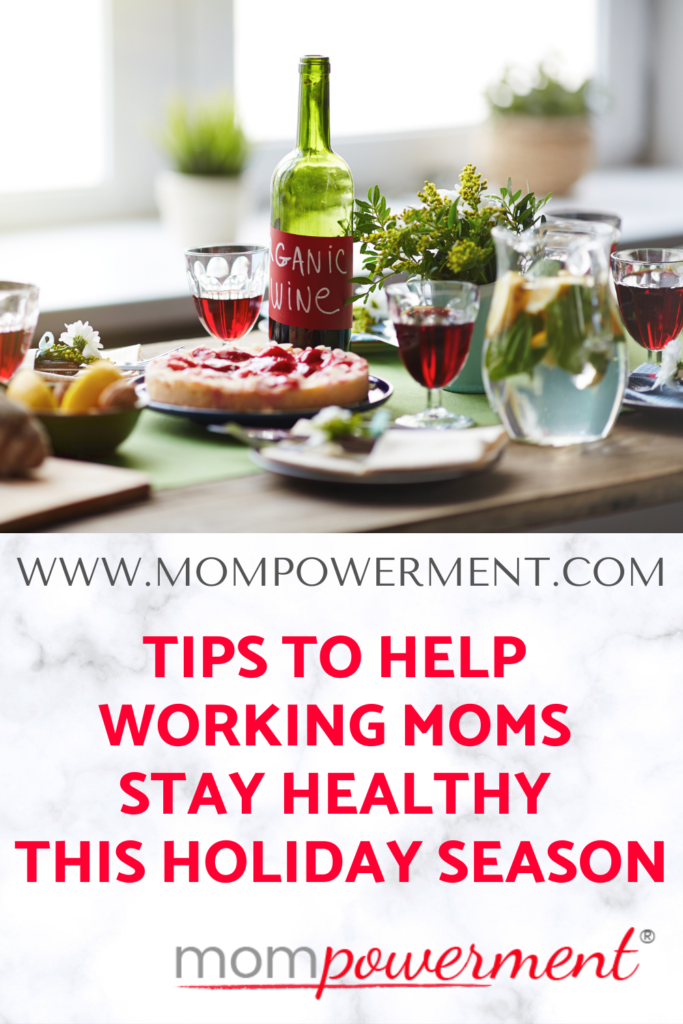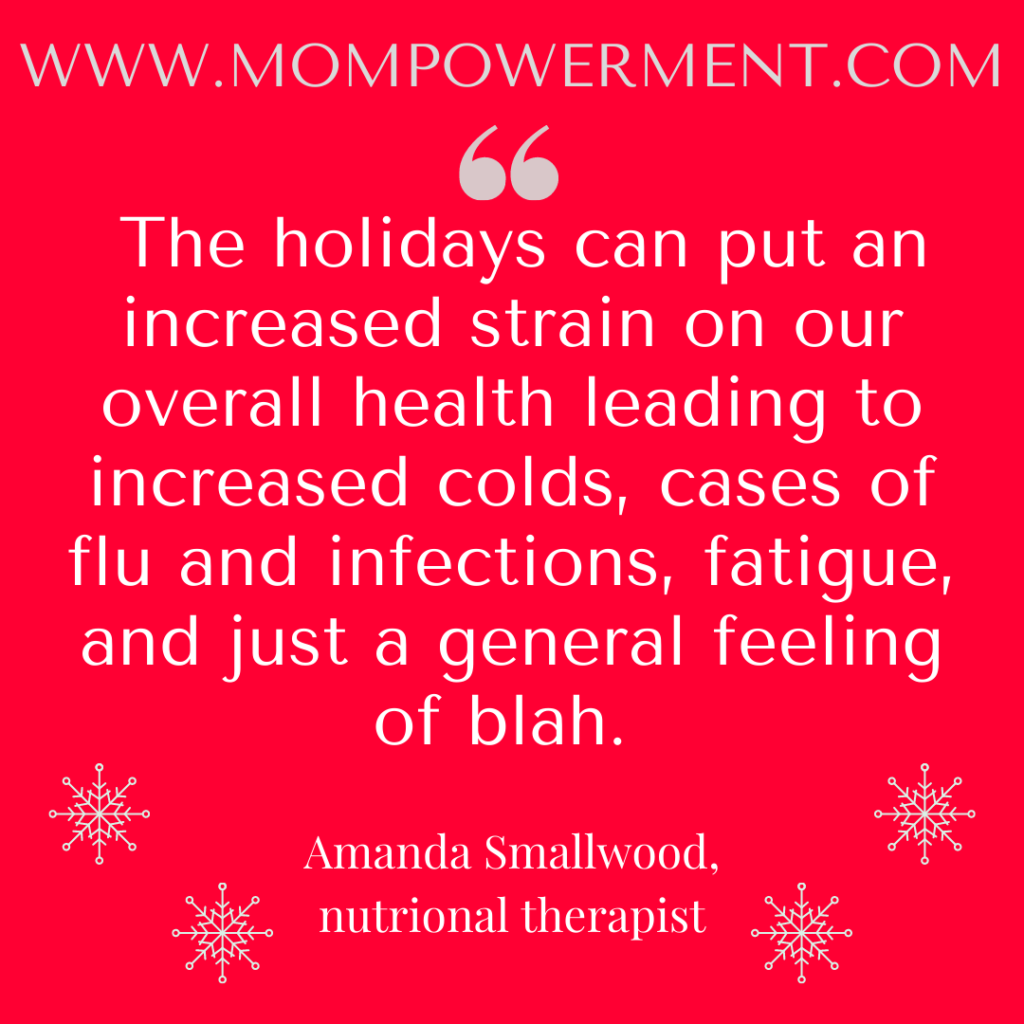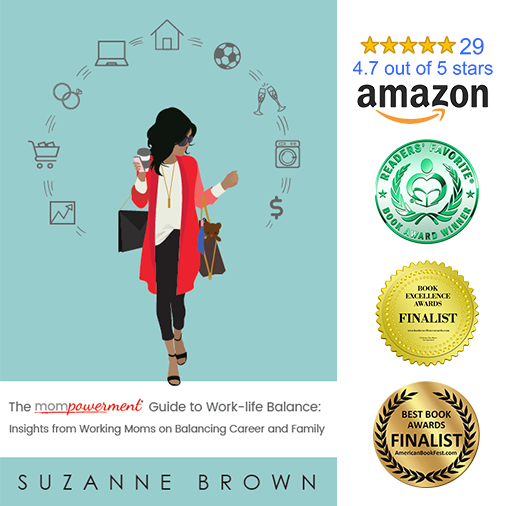
When many of us think of the holiday season we often think of 4-6 weeks of celebrations with friends and family and an abundance of food and festive activities. We love the holidays, but indulgent food, increased alcohol consumption, late nights, and emotional stress can take their toll. Once January rolls around, many of us feel how our bodies have suffered. It’s not just the extra 1-2 pounds we’re often carrying around. The holidays can put an increased strain on our overall health leading to increased colds, cases of flu and infections, fatigue, and just a general feeling of blah. We’re sharing actionable strategies and tips to help working moms stay healthy this holiday season.
Support your immune system
Our immune system is at the heart of health maintenance, and the increased sugar consumption, stress levels, and disrupted sleep patterns of the holidays can put a strain on it and interfere with its effectiveness. However, there are things you can do to better support your health during the holidays, and they’ll help you keep those extra pounds at bay too!
The immune system consists of various interconnecting systems that play individual roles to protect our bodies from illness. When one of these systems stops working well, we are more likely to get sick, and it can zap our energy levels. During the holidays, we usually stray from our standard routine and diet and have added stressors that can decrease the effectiveness of our immune systems.
Don’t overindulge in sugar
Many traditional sugar-laden treats seem to magically appear during the holidays. Co-workers bring cookies to the office, candy canes are thrust into our hands. It’s easy to adopt an attitude of: “Hey, it’s the holidays! I can treat myself this once.” The issue is that it’s usually not “just this once,” and we partake in treats far beyond the 2-3 main celebration days.
In addition to creating a roller-coaster of your blood sugar levels, consuming refined carbohydrates and sugars has been shown to suppress the immune system, including white blood cell activity, which directly kills viruses and bacteria, for up to 5 hours after ingestion! This affects a wide variety of immune cells and slows their ability to fight off an infection.
- Keep alternatives close at hand. Always keep some healthier snack options on hand to satisfy some of the cravings. A few easy suggestions are apples with nut butter, a handful of nuts, small Greek yogurt with berries, a small piece of 70% dark chocolate, or a cup of hot tea.
- Don’t eat sweets on an empty stomach. We get it. The sweets are hard to resist. Try to eat sweets as a dessert only and not as a snack. Consuming a meal before having a dessert means you won’t be as hungry and makes it easier to keep portion sizes small. Additionally, the food in your stomach will slow the absorption of sugar into your body, which contributes to more balanced blood sugar.
- Limit your portion size. When it’s time for dessert, opt for half a portion and take small bites (I find using a small spoon makes this very easy). Oftentimes, just a small taste of dessert is enough to satisfy those cravings, and taking small bites means it will last longer!!!
- Avoid frequent sweets. This is where mindset can help. Make the decision to avoid the daily and easily available treats at the office and beyond. This can seem tricky to do, but if you visualize yourself before you’re tempted, it’s more likely your willpower will be stronger – mind over matter.
Manage your alcohol consumption
Numerous parties, infinite toasts, and a very full social calendar mean there are many more occasions to drink alcohol during the holidays. There is evidence that high alcohol consumption can contribute to lowered immune function and a decreased number of immune cells, which can leave you more vulnerable to illness. (And no one wants to be sick during the holidays!) You don’t have to forego the bubbly altogether, but it’s good to have a plan before your social events and set your own limits before you start drinking. To start with, a good rule of thumb is to limit yourself to one alcoholic drink per hour.
- Alternate your drinks. After every alcoholic beverage, drink a non-alcoholic beverage. Sparkling water mixed with a variety of fruit or herbs is bubbly, alcohol-free, and contains little (or no) sugar. Sparkling water drinks are also easy to make at home. Mix sparkling water with some lime, mint, or other fruit. Use your imagination! Some tried and true combinations are raspberries + lime, strawberry + mint, and ginger + berries. Mash the fruit and/or herbs for a stronger flavor.
- Stay away from fancy cocktails. These sweet drinks are easy to drink, which often leads to drinking quickly, and often drinking more. Keep in mind that many cocktails, in addition to alcohol, contain high amounts of sugary syrups and flavorings (I discuss how sugar can affect the immune system above); stick to red wine, white wine, champagne, or sparkling wine.
- Eat before you drink. It’s important to eat before drinking alcohol, and nothing too light. Food in your stomach slows the absorption of alcohol in your system. This makes it easier for your body to process the alcohol and can decrease some of the strain on your body and immune system. Additionally, you are likely to drink more slowly if you’re not hungry.

Stay hydrated
The tips to help working moms stay healthy this holiday season aren’t about only alcohol and sweets. Staying hydrated this holiday season is integral (really, you can use these all year long). The human body is approximately 60% water, and the immune system requires sufficient water to function properly. Studies have shown dehydration can lead to a suppressed immune system, including fewer white blood cells, and a lower number of antimicrobial proteins important for defense.
Spending more time indoors (possibly with the heating on), greater consumption of alcohol, and eating more salty foods can all contribute to some level of dehydration. Try to aim for 8 glasses (about 1-2L of water) of water per day. Here are a few other ideas that can help you stay hydrated:
- Cut back on alcoholic and caffeinated beverages. Both alcohol and caffeine work as diuretics and can promote dehydration.
- First thing in the morning. Have a glass of warm water on an empty stomach first thing in the morning. (Room temperature water will work but warm water is better.) Make it a habit to have a glass of water before your day even starts! Additionally, it is believed that drinking warm water on an empty stomach can support metabolism and detoxification.
- Make water interesting. Add sliced fruit, such as lemon, strawberry, cucumber, and/or herbs such as mint, to give an added dimension to your water and make it more fun to drink.
- Eat fruits and vegetables. Fruits and vegetables, particularly those that have a high proportion of water (e.g., cucumber, melon, strawberries, peaches, and red peppers) can also contribute to your water intake. Consider snacking on cucumber with lemon juice (watermelon is also surprisingly tasty coated in a little lime juice!), a small cup of fruit salad with a tablespoon of Greek yogurt, red pepper crudites with a tablespoon of hummus.
Don’t forget that stress can impact your alcohol intake, eating habits, and your overall health. If you’re looking for ideas to help you manage stress, take a look at the Mompowerment post on managing stress during the holidays.
We get that working moms are being pulled in many directions during the holidays. We’ve shared many strategies and tips to help working moms stay healthy this holiday season and support your immune system. Which tips do you plan on using? (Remember, you don’t have to use these all. Use the ones that make sense for you and your lifestyle.) Have ideas that you swear by? The Mompowerment team would love to hear your tips and tricks on how you stay healthy during this festive period! Have questions? Let us know in the comments.

Amanda Smallwood is a nutritional therapist on a mission to support busy women take control of their health and wellness. She offers 1-to-1 consultations and group workshops (both in-person and online) and collaborates with organizations. She uses a holistic approach to her nutritional therapy practice and strives to provide helpful, actionable tips that women will be able to use based on their lifestyle. Amanda lives in London with her husband, two children, and a very fluffy cat.
Want to read some of the science behind these tips? The information was all found here:
Sanchez A Reeser JL Lau HS Yahiku PY Willard RE McMillan PJ Cho SY Magie AR Register UD (1973) Role of sugars in human neutrophilic phagocytosis The American Journal of Clinical Nutrition 26 11 1180-4 https://academic.oup.com/ajcn/article-abstract/26/11/1180/4732762
Romeo J Wärnberg J Nova E Díaz LE Gómez-Martinez S Marcos A (2007) Moderate alcohol consumption and the immune system: a review The British Journal of Nutrition 98 Suppl 1 https://www.cambridge.org/core/journals/british-journal-of-nutrition/article/moderate-alcohol-consumption-and-the-immune-system-a-review/D340A16DDC772F6F2625001BD4AD430B
Jerrells TR Slukvin I Sibley D Fuseler J (1994) Increased susceptibility of experimental animals to infectious organisms as a consequence of ethanol consumption Alcohol and Alcoholism Supplement 2 425-30 https://europepmc.org/article/med/8974364
Wilson JX (2005) Regulation of vitamin C transport. Annual Review Nutrition 25 105-125 https://www.annualreviews.org/doi/abs/10.1146/annurev.nutr.25.050304.092647
Fortes MB Diment BC Di Felice U and Walsh NP (2012) Dehydration decreases saliva antimicrobial proteins important for mucosal immunity Applied Physiology, Nutrition, and Metabolism, 37(5) 850-859 https://cdnsciencepub.com/doi/abs/10.1139/h2012-054
Janeway CA Jr Travers P Walport M et al. Immunobiology: The Immune System in Health and Disease. 5th edition. New York: Garland Science; 2001. The mucosal immune system. https://www.ncbi.nlm.nih.gov/books/NBK27169/
Chishaki T Umeda T et al. (2013) Effects of dehydration on immune functions after a judo practice session Luminescence 28(2) 114-20 https://pubmed.ncbi.nlm.nih.gov/22362640/


